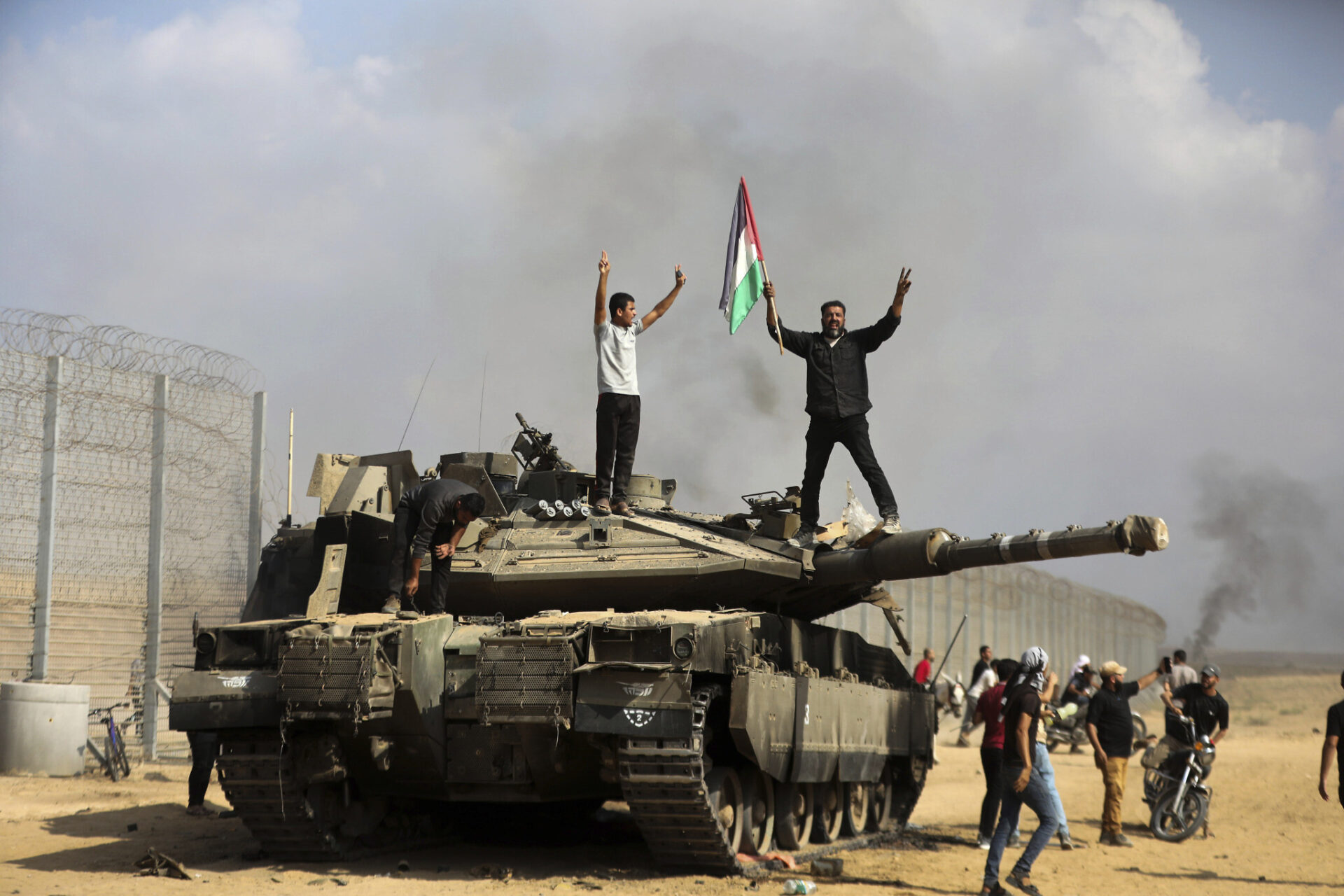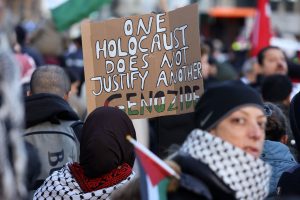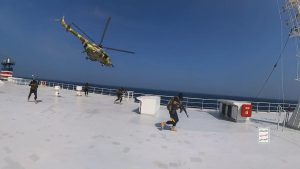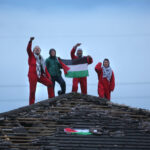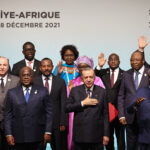Why Did The Gaza War Start And Where Is This Going?
In the early hours of Saturday morning, a surprise offensive was launched against Israel by resistance groups based in the besieged Gaza Strip. In what Palestinian leaders named operation ‘Al-Aqsa Flood’, the Gazan armed factions succeeded in capturing Israeli settlements for the first time in the history of the conflict, inflicting massive casualties. In response, Tel Aviv quickly declared war. However, this escalation didn’t truly begin on October 7.
For the first time since 2014, Mohammed Deif, the leader of Hamas’ armed wing, the al-Qassam Brigades, issued an audio statement declaring the onset of an unprecedented military operation against Israel. This statement was released shortly after the abrupt firing of thousands of rockets and mortar munitions. Concurrently, hundreds of al-Qassam fighters crossed the separation fence from Gaza and entered nearby Israeli settlements. This event marked the beginning of the current war, as announced by Israeli Prime Minister Benjamin Netanyahu.
While the aforementioned events depict the escalation of October 7, the path to war is rooted in numerous factors. Most notably, these include Israeli attacks on Palestinian worshippers at Al-Aqsa Mosque, the third holiest site in Islam. Between the start of this year and this current escalation, at least 200 Palestinians in the occupied West Bank were killed. Additionally, in May, Israel initiated an unprovoked attack on the Gaza Strip, resulting in the deaths of at least 33 Palestinians, including six leading figures of the Palestinian Islamic Jihad (PIJ) movement. The Israeli leadership also commanded a devastating invasion of the Jenin Refugee Camp in early July. During this assault, 12 Palestinians were killed, thousands were displaced, and the camp’s infrastructure was severely damaged. These events are just a snapshot of the conditions contributing to this year’s escalation.
red. media interviewed Tariq Salmi, the media spokesperson for the PIJ movement in Gaza. Salmi passionately expressed, “Today, we send a call from the heart of Gaza for all fronts to activate their positions and to cross borders in support of our Palestinian people and the Palestinian resistance.” His sentiments mirror the public statements from the leaders of the al-Qassam Brigades, Mohammed Deif and Abu Obeida, who directly urged all Arab and Muslim nations to join the fight. Salmi also informed red. media that Israel is currently perpetrating massacres against civilians in Gaza, aiming to “turn this victory into a crime and a massacre.”
Israel’s offensive on the Gaza Strip includes attacks on essential infrastructure. This encompasses strikes on ambulances, mosques, and hospitals, such as the Indonesian hospital where an airstrike resulted in one death and at least five injuries. Israeli authorities also cut off electricity, fuel and supplies to the Gaza Strip, immersing the besieged coastal enclave in darkness. The UN has already declared this small strip of territory unlivable by modern standards. With a population of approximately 2.4 million (50% being minors under the age of 18), these roughly 1.2 million children residing in Gaza are subjected to an environment in which 97% of the water is deemed unfit for human consumption; only the upper 10% of Gazans have access to clean water supplies according the UN.
70% of Gaza’s population are registered as refugees with the United Nations Relief and Works Agency (UNRWA). Many of these individuals were expelled from areas bordering Gaza, places they can now see within walking distance from their current refugee camps. Notably, a significant proportion of the Palestinian armed resistance fighters hail from refugee backgrounds. This means that many of the Israeli settlements near Gaza, which were recently overtaken, are situated near areas from which these fighters’ parents or grandparents were directly expelled during the 1948 Nakba.
What Does This Offensive Mean and Why Now?
The official reason given by Palestinian factions for launching the military operation was violations committed against worshippers around the al-Aqsa Mosque and to thwart an alleged scheme by the settler movement to seize the site. While this rationale has been central to the military operation, its objectives appear more multifaceted. The unprecedented actions taken may achieve outcomes extending beyond merely stopping settler incursions into Al-Aqsa.
One primary foreign policy ambition of US President Joe Biden is to broker a normalization agreement between Saudi Arabia and Israel. The current conflict could derail such negotiations. Some speculate that halting the Saudi-Israeli normalization deal might have been an intended goal of the Palestinian factions. Should a deal be reached, it would weaken the bargaining power of the Palestinian national movement in future negotiations. This possible weakening may explain why the Palestinian Authority (PA) in the West Bank, who traditionally oppose Hamas, has refrained from condemning the resistance operation. They could leverage the gains made by the Gazan resistance in future dialogues.
It’s been over three decades since the Oslo Accords (Oslo I) were signed between the Palestine Liberation Organization (PLO) and Israel. Throughout this period, no solution materialized that fully recognizes a Palestinian State. Arab normalization, absent a resolution to the Palestine-Israel conflict, counters the Arab Peace Initiative of 2002. This initiative positioned normalization as a bargaining chip in brokering a “Two-State Solution.” The US’ approach assumes the Palestinian issue can be downplayed, an assumption this recent military operation from Gaza challenges.
Israel hasn’t faced such a significant setback since the October War of 1973 when Egypt and Syria jointly sought to reclaim the occupied Sinai and Golan Heights. The timing of al-Qassam’s attack, just a day after the 50th anniversary of the October War, holds symbolic significance. The attack seemed unexpected. Few anticipated such a large-scale offensive from Gaza, and Israeli intelligence apparently didn’t foresee the robust capabilities of the Palestinians, despite Gaza being the most heavily surveilled area of our planet and suffering under a total air, land and sea blockade. Israel’s spectacular failure to anticipate the operation resulted in a huge blow, compromising its army’s primary line of defense.
On Sunday, Lebanese Hezbollah launched attacks on three locations in the occupied Shebaa Farms area. This move is likely a warning to remind Israel that it is capable of opening a front in its north and that if Israel opts for a ground invasion of Gaza, Hezbollah might fully engage in the conflict. Reports suggest that Egyptian mediators relayed this message to officials in Tel Aviv.
Israel currently faces a dilemma. It can either choose a ground invasion of Gaza or focus on an extensive air campaign from a distance. Truly crippling the military infrastructure of the Palestinian armed groups necessitates a ground invasion. However, with the looming threat of Hezbollah’s involvement, Israel will have much to consider. Moreover, it’s plausible that the Palestinian resistance has anticipated and prepared for a ground invasion. This could mean that any Israeli ground offensive might be walking into a well-planned trap. In essence, opting for a ground approach could instigate a broader regional conflict. Conversely, a primarily aerial assault would disproportionately target civilian infrastructure and additionally put the hostages the Palestinian resistance has in its custody at risk, therefore such a strategy might not satiate the desire for retribution among a significant segment of the Israeli populace, potentially destabilizing Netanyahu’s government.
The forthcoming decisions hinge on a crucial question: Does Netanyahu prioritize his political career or the longevity of the Israeli regime? This is especially pressing if entities like Hezbollah and other regional players fully engage in the conflict. Ultimately, if the Palestinian resistance withstands the Israeli offensive and remains intact, it might compel major powers, like the United States, to engage in direct negotiations with them.

